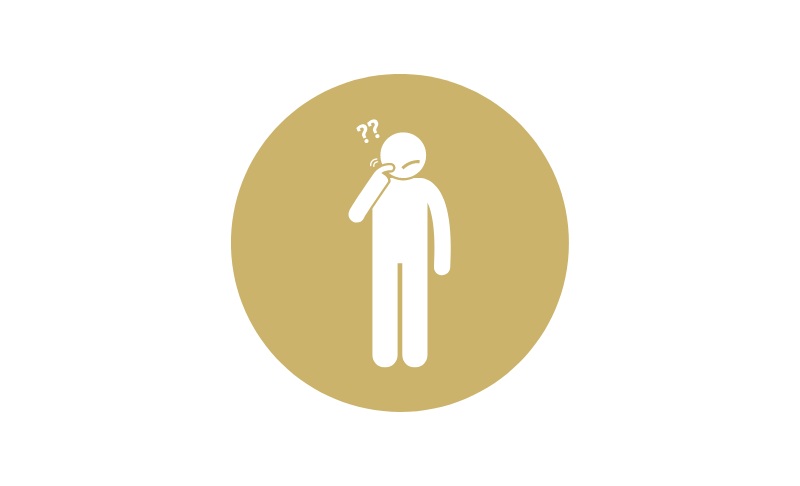Dementia

What is Dementia?
It is a condition in which cognitive function declines for a variety of reasons, such as brain disease or disorder, and becomes a hindrance to overall daily life.
It has several symptoms, and the following, which have the highest incidence, are known as the "four major dementias".
Alzheimer's Dementia
Alzheimer's dementia is the most common form of dementia. The main cause of Alzheimer's disease is the buildup of unwanted proteins such as amyloid beta,
which causes nerve cells to degenerate and die, and parts of the brain to atrophy.
It often develops with forgetfulness and progresses slowly. Female patients are more common, and it often develops into paranoia, violence, and violent outbursts.
In addition, early treatment of this dementia can slow the speed of symptom progression.
Symptoms
・ Memory loss
・ Paranoia about being robbed
・ Wandering
・ Disorientation, in which the patient does not know where he or she is or when he or she is there
Vascular Dementia
The second most common type is called vascular dementia. Vascular dementia is caused by cerebral infarction, cerebral hemorrhage,
or other brain diseases that block blood vessels in the areas of the brain that control cognitive functions (frontal lobe, parietal lobe, etc.),
resulting in the death of cells due to insufficient oxygen and nutrients being supplied. Other causes include lifestyle-related diseases.
The symptoms of this dementia vary depending on the part of the brain that is affected, as it is no longer able to fulfill its original role.
Some cognitive functions are preserved. Symptoms may progress slowly or rapidly.
Symptoms
・Forgetfulness
・Inability to control emotions (crying or getting angry easily)
・Numbness in limbs
・Memory impairment
・Impaired judgment
Lewy body Dementia
It is the third most common symptom. The incidence is higher in males and about twice as high as in females.
This is caused by the appearance of large numbers of Lewy bodies, which are special proteins found in nerve cells in the brain,
which destroy nerve cells and prevent them from transmitting instructions properly.
Symptoms
・Visual hallucinations or delusions of seeing things that are not real.
・Strangers in the house, etc.
・Trembling in arms and legs
・Shorter strides and likely to fall
If you experience symptoms of visual hallucinations, do not dismiss them out of hand, but talk with them.
Frontotemporal Dementia
It is the fourth most common symptom. It is the only dementia that is designated as intractable. Symptoms are caused by atrophy of the frontal and temporal lobes, resulting in blockage of blood flow.
There are various symptoms such as repetition of the same words and actions, frequent personality changes and abnormal behavior, and unstable mental state.
Symptoms
・Repeats the same words and actions.
・Personality changes
・Frequent abnormal behavior
・Mental instability
If you think it is Dementia..
Dementia is a very familiar disease that now affects one in six Japanese over the age of 65. If someone suffers from dementia, it is important that those around them provide warm support. It is therefore very important to be well informed about the disease.


